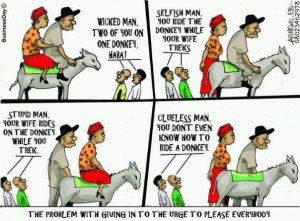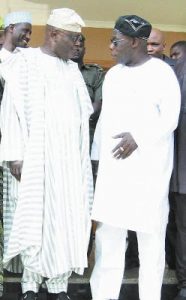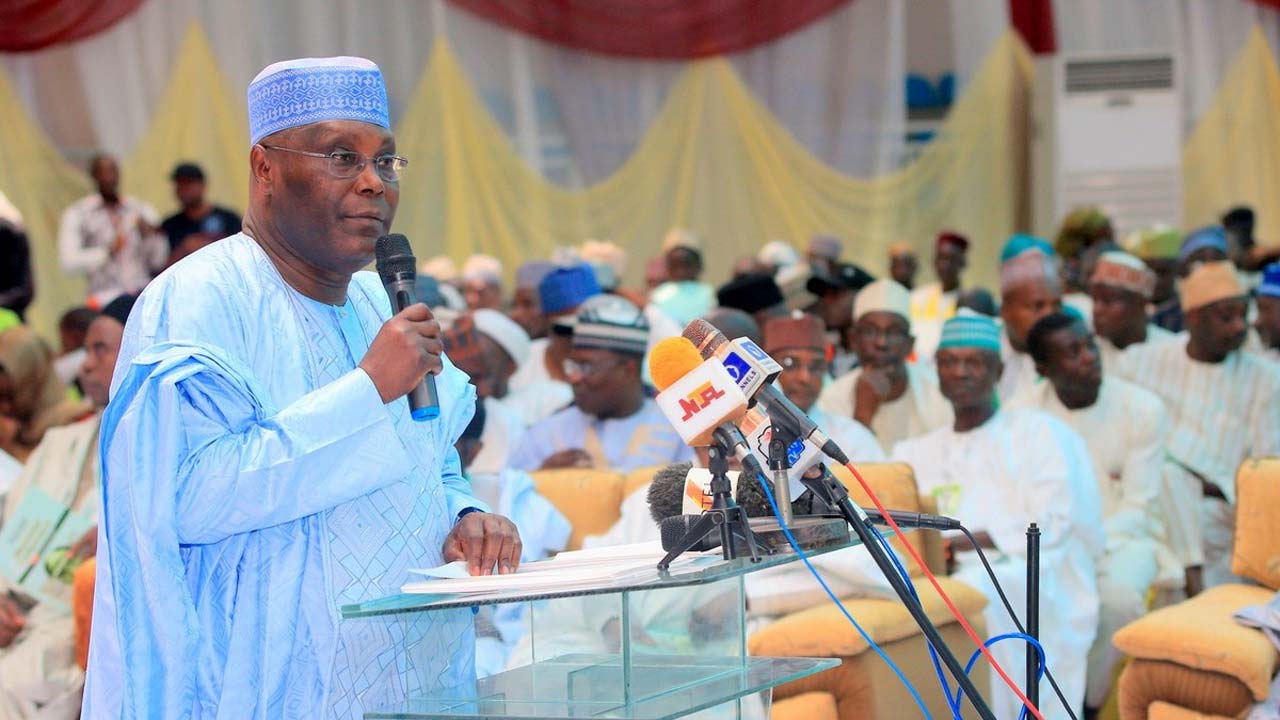By midday today, (Nov. 24th, 2017), former Vice-President Atiku Abubakar would have collected or about to collect membership card of the People’s Democratic Party, (PDP) back in his home state of Adamawa in the northeast of Nigeria if the news in the air in the past few days work to the clock. When that happens, there would be all the cameramen and media technology at work about it. That is part of it but Atiku’s eventual return to the PDP is only a formality. It has been a done deal ever since. This must be the climax of one Nigerian’s movement from one party to the other in search of presidential power within the past two decades. That man is Atiku Abubakar whose media squad now advertises as the Waziri Adamawa as opposed to his former title of Turaki Adamawa.
Beyond the media construction of the decamping, the real question is whether Atiku can get the presidential ticket of the PDP and if the PDP can win the 2019 presidential contest. By the principle of rotation of power underpinning Nigerian politics, it is still the turn of the north to produce the president for another four years. The first of the eight years has been utilised by the incumbent president, Muhammadu Buhari who is angling for a second term.

What a Nigerian newspaper cartoonist made of Dr Goodluck Jonathan leadership
Ordinarily, a second term is a foregone conclusion for incumbents in Nigeria. Since the defeat of the incumbent in the 2015 presidential poll, that is no longer taken for granted. The situation in 2019 will be worse. The Goodluck Jonathan Presidency in 2015 was successfully constructed in terms of completely clueless president whose cluelessness made a looting spree never seen in Nigeria’s history possible. The messy management of the Boko Haram insurgency and the very narrow social as well as intellectual base of the regime compounded things. Through the January 2012 revolt, it was clear the sitting president and the subsisting Presidency lacked the native intelligence and the wisdom that makes presidential leadership such a fundamental requirement for stability in an unusually complex agrarian society as Nigeria.
But it did not take too long before an informed traditional ruler warned that the Buhari regime which swept into power as a critique of Jonathan could get the Jonathan treatment if it is not careful. That is where the significance of Atiku’s departure from the APC lies. It is not in Atiku himself, no matter how astute he may be. It is not in his war chest as crucial as that could also be. And it does not reside in his coming from the north east much as the sentiments about breaking perceived northwest hold on power is a factor. It is about whether the centres of power in Nigerian politics have been forced to find in Atiku a consensus candidate as far as one can talk about the constitutive interest of these centres of power.
Meaning is not stable. There is something called circumstantial determinism. In other words, might the meaning of Atiku yesterday have changed as far as the sentiments of the dominant fractions of the elite are concerned? Unless this is the case, then it is safe to say that Atiku is wasting his time and money. Since it is not likely that he would want to waste his time and money, then there is a basis to conclude that such a change might have taken place or about to.

About to re-align or the feud continues?
Surprisingly, it was Dr Goodluck Jonathan who gave the clearest clue recently when he suggested that the PDP mandarins appreciates that unless they get the blessing of General Obasanjo, that consensus would not work. In politics, nothing is impossible but it would be a very interesting development for students of political sociology to watch Obasanjo ditching a fellow General, (Buhari) for a ‘civilian’. Such is, however, the stuff of politics. Or, could PDP be working along the possibility that even an Obasanjo can be so isolated that he would have no alternative than embrace the Atiku presidential project?
In other words, the most important feature to look out for as a big masquerade in Nigerian politics such as Atiku makes his way into the arena would just be the possibility of elite consensus around him. That is just what would make all the difference between challenger and incumbent.
Thereafter, incumbency and ruling party would make no much sense in 2019. But, would it be such a simple thing? Yes and no simultaneously. In his lengthy justification of moving out of the APC, Atiku is saying that President Buhari’s management of party mandarins such as himself, Bola Tinubu, Rabiu Kwankwaso has not improved to this moment even long after Nasir el-Rufai of Kaduna State pointed that out to the president over a year ago. Second term ambition has so disfigured the Buhari Presidency that it is almost no longer identifiable in its slavishness to mediocre neoliberalism and toadying behaviour. The president has woefully failed the assumption that only a one – term president can deal with the rot in Nigeria. He is now speaking in tongues. The spate of violence is rising everyday across the country. Those suspected of corruption are obviously fighting back. The division among the elite is much deeper under the Buhari Presidency and the regime itself is deeply divided. A house divided against itself, we are told, leaves enough cracks for lizards of the outside to come in.
But, assuming that Atiku gets the presidency, what would be his clarion call that would make him better than Buhari or Obasanjo or the late Umaru Yar’Adua? Atiku is not known for standing up for a rapid transformation of Nigeria from an agrarian to a manufacturing economy. Instead, he professes private enterprise which he knows or ought to know would never lead anywhere without a strong state. Many people would say that he, like Obasanjo, would announce his key principal officers and might even send the cabinet list to the National Assembly a few hours after being inaugurated but so also would many be keen to ask if ability to put a cabinet in place is the same as qualitative, sensitive leadership in a society that is seriously running the risk of implosion.
So, Lagos lawyer, Femi Falana might be right when he was sort of alarmed that the choice in 2019 is now effectively either Buhari or Atiku. Is there any chance that either APC or PDP can rethink its choices and widen the choice? Very unlikely! May Nigeria be the winner!




























